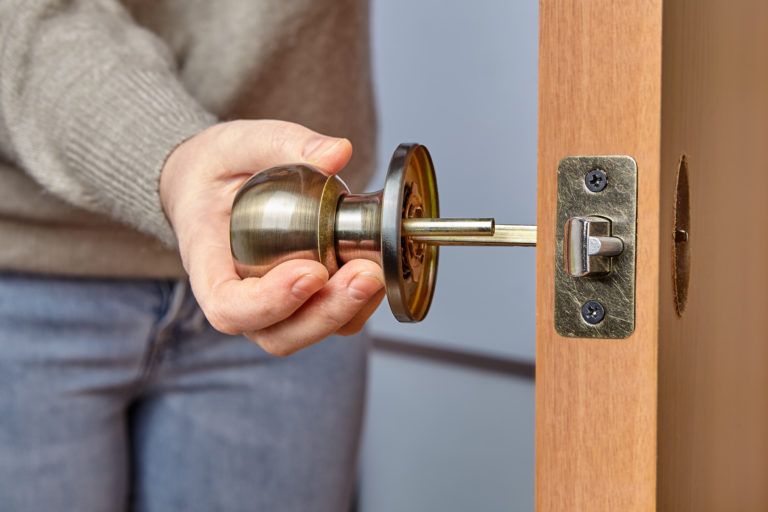Winter weather can be especially hard on locks, causing them to freeze, jam, or malfunction. Without proper care, you may find yourself struggling to open doors, risking damage to both the lock and your key. Fortunately, by taking proactive steps, you can weatherproof your locks and ensure they stay reliable all winter. Follow this guide to keep your locks working flawlessly even in freezing temperatures.
What Causes Locks to Freeze in Winter?
Freezing locks result from moisture inside the mechanism turning to ice in low temperatures. This often happens with exposure to rain, snow, or condensation. The problem is compounded when dirt and debris mix with the moisture, causing further blockages. Recognizing these causes is crucial to avoid frozen locks.
Keep Locks Working: Use the Correct Lubricant
Keeping your locks lubricated is a simple yet effective way to weatherproof them for cold temperatures. High-quality lubricants like graphite powder and silicone-based products are ideal, as they keep the internal components moving freely and prevent freezing. Avoid using oil-based lubricants such as WD-40, which can thicken in the cold and attract dirt.
Steps for Application:
Insert the nozzle or straw into the keyhole.
Spray or puff a small amount of lubricant inside the lock.
Use your key to turn the lock multiple times, spreading the lubricant throughout.
Wipe away any excess lubricant on the exterior.
Lubricating your locks routinely, particularly before freezing weather, ensures they function without issues.
Tips to Prevent Moisture from Freezing Your Locks
To prevent frozen locks, eliminating moisture exposure is key. Here’s how you can protect your locks:
Install a Weatherproof Cover: Lock covers are an easy and effective way to shield locks from rain, snow, and ice. These are readily available and simple to install.
Seal Gaps Around Locks: Seal any gaps around your locks or door frames using caulk or weatherstripping. This prevents drafts and moisture from seeping in, especially in exposed areas.
Use a Lock De-icer Spray: Keep a de-icer spray on hand to melt ice and clear moisture when locks freeze. Use it sparingly, as it’s a reactive measure rather than preventive.
The Best Places to Store Spare Keys During Winter
Storing spare keys outside during winter can cause issues. Cold metal keys exposed to moisture can freeze or even become brittle. To avoid this, always keep spare keys indoors in a warm, dry place. If you need to store a spare key outside, use a weatherproof key lockbox to protect it from freezing temperatures.
Tips for Covering Outdoor Locks in Cold Weather
Outdoor locks, including those on sheds, gates, and garages, face a higher risk of freezing during cold weather. To protect them, cover the locks with a sock, plastic bag, or rubber cap and secure it with a rubber band. This easy step provides an effective barrier against snow and ice.
Removing Dirt and Debris from Locks in Winter
Dirty locks are more likely to freeze in winter because debris can clog the mechanism. Regular cleaning ensures smooth operation and reduces freezing risks. Clean your locks as follows:
Use a cotton swab or pipe cleaner to remove dirt from the keyhole.
Spray compressed air to dislodge trapped debris.
Apply lubricant to prevent obstructions and ensure smooth function.
Keeping locks clean is a crucial step in preparing them for cold weather.
How to Thaw Frozen Locks Without Hot Water
When dealing with a frozen lock, resist the temptation to use hot water. Though it might seem like a quick fix, the water will refreeze in cold conditions, making the situation worse. Opt for a lock de-icer, lubricant, or a hairdryer set to low heat to thaw the lock gently and effectively.
Winter Lock Maintenance: Don’t Skip Testing
Regularly testing your locks during winter is crucial, even with preventive measures in place. Turn your key to ensure the lock operates smoothly. If there’s any stiffness or difficulty, take immediate action to resolve the issue before it worsens.
The Benefits of Replacing Old Locks in Winter
Old or worn locks are more likely to freeze and malfunction in cold weather. Signs of wear, such as rust, sticking, or difficulty turning, indicate it’s time for a replacement. Opt for locks with weather-resistant or all-weather labels, as these are built to withstand extreme temperatures and moisture effectively.
Use Lock Socks to Shield Outdoor Locks from Freezing
Insulate your frequently used outdoor locks with a lock sock or insulated protector. These weather-resistant covers are specially designed to protect padlocks on gates, sheds, and garages from freezing. This straightforward solution helps prevent cold-weather lock issues effectively.
Winter Lock Protection: Deadbolt Covers Explained
Installing a deadbolt cover can help protect your lock from the elements. Designed to block wind, snow, and ice, these covers reduce the likelihood of freezing. They’re readily available at hardware stores and easy to set up, making them a convenient winter protection solution.
What to Include in Your Winter Lock De-icing Kit
Frozen locks can catch you off guard, even with preventive steps in place. Be ready for emergencies by keeping a de-icing kit nearby. Stock it with a lock de-icer spray, compressed air, and a hand warmer to handle frozen locks swiftly and keep disruptions to a minimum.
The Benefits of Weatherproof Smart Locks in Cold Climates
In regions with extreme winters, digital or smart locks offer a modern solution to freezing issues. Without traditional keys, you avoid the risk of frozen or broken keys. Many of these locks are weatherproof, designed specifically for cold conditions. While the initial expense is higher, they provide long-term convenience and reliability.
The Importance of Lock Maintenance in Cold Weather
Regular maintenance is essential for keeping locks in good working condition. Check your locks at the start and end of winter for signs of rust, damage, or wear. Clean them thoroughly, apply lubricant, and replace any locks that appear worn out. Preventative care keeps your locks reliable throughout the year.
Weatherproofing locks is an essential part of winter preparation. With proper care, such as applying lubricants, protecting locks from moisture, and maintaining their condition, you can prevent freezing and keep them functional. For frozen locks, steer clear of hot water and force; instead, use de-icers or gentle heat to resolve the issue.
With a little preparation and regular upkeep, your locks can withstand even the harshest winter weather. Investing in maintenance and weather-resistant solutions not only enhances their longevity but also ensures you’re ready to face whatever the season throws your way.

